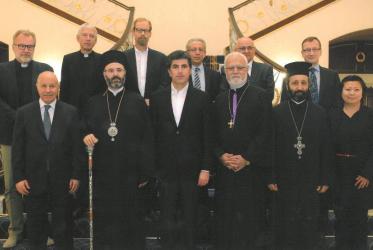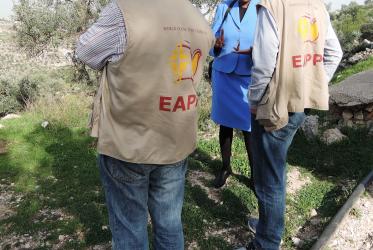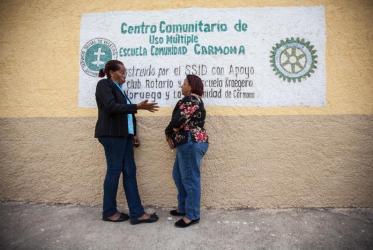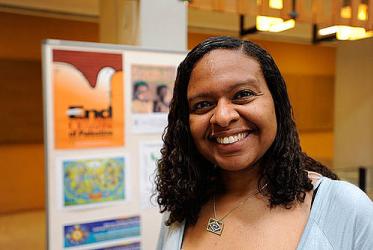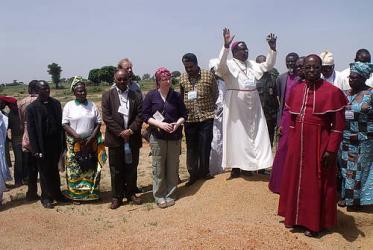Displaying 101 - 120 of 129
WCC and UNICEF sign global partnership to promote children’s rights
18 September 2015
Joint efforts to fight violence against children
18 June 2015
A presence to accompany vulnerable communities
31 March 2015
Church leaders address statelessness in Dominican Republic
03 February 2015
New UN document opens door for churches to do more for indigenous rights
23 September 2014
Human rights defender Charles Harper honoured by Argentinian government
19 September 2014
Implementing PEAC initiatives in Colombia
07 May 2012
Durban outcome is not enough, says WCC
13 December 2011
Interfaith partners advocate for health at UN summit
17 September 2010
Bells ring a wake-up call for climate justice
14 December 2009
